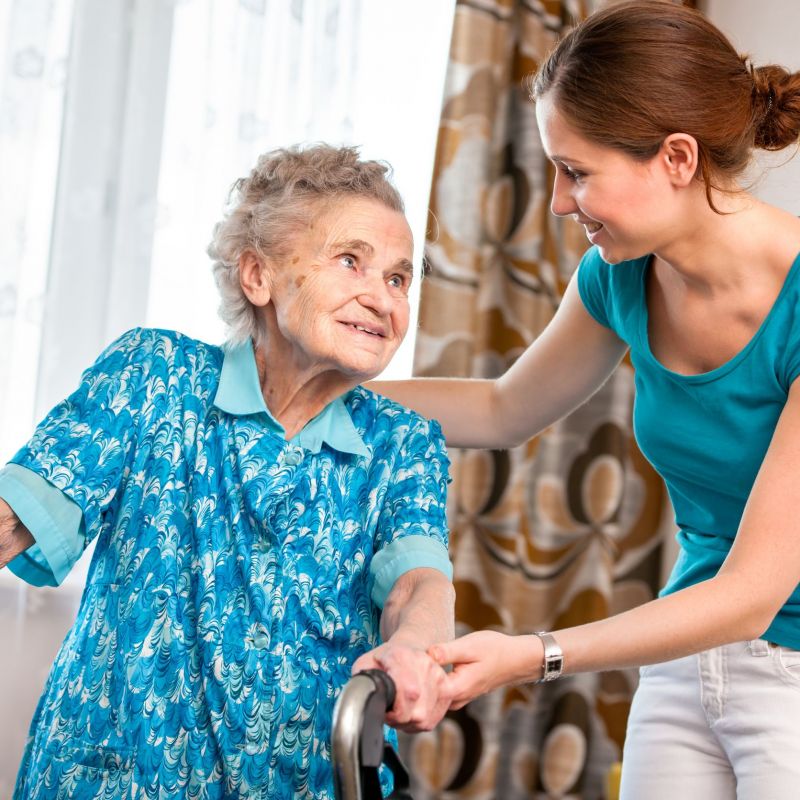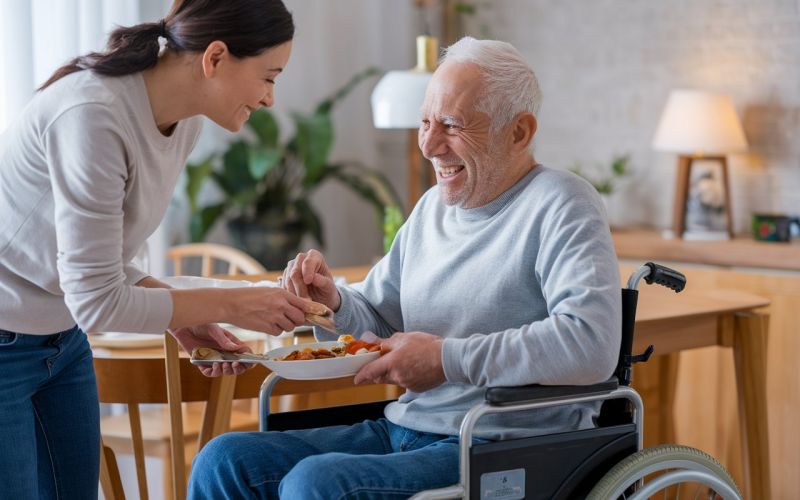7 Tips in Dementia Care: Refusal to Bathe
iSavta | 15.06.2020

Have you ever experienced having a hard time encouraging your clients (or even your elderly parents) to take a bath? How do they respond each time you tell them it’s time for shower? Do you have to force them so you don’t waste your time going back and forth still not being successful in making them fresh and clean?
Yes, many times it is frustrating because what we desire to do is really for their own good. Bathing can really be challenging for caregivers, but there are tips to help you psych up your client(s)/parents so there’s less resistance, and they’d gladly do what’s necessary for them - at their comfort.
We need to remember that bathing is something personal and private, so we always have to think of ways to maintain their dignity while achieving our goal. The way we talk is very important, being tactful and sensitive to them is vital in gaining their participation.
Use More Pleasing Terms
Several times, when we ask our elderly parents or clients to go to the shower, they refuse immediately. This could be disheartening for a caregiver because sometimes we want to get things done as early as we can so we can move on to the next task. Though our clients may have aged, they still want to have a sense of dignity. Bathing is very private, and sometimes it’s not really because they don’t want to take a bath, rather they get the notion that they’d get themselves exposed, not to mention, all the discomfort that comes with it. They become full of anxiety just by hearing the word “bath.” Instead, we may use the words “spa treatment” or “get cleaned” as better non-traumatic terms. This way, our clients willingly follow from their hearts, and we are able to achieve our goal without force.
Create a Soothing Atmosphere
Like royalty, we all get this feeling when we are in a spa. It’s the same thing that we want to achieve here. We make the atmosphere appealing. We can probably decorate it with some flowers and battery-operated candles, and some gentle scents - just to get a feel of a spa. Living up at least to the comforts and privacy a true spa could offer, encourages our clients not just to do it once, but also in your next invitations to get him/her cleaned.
Ask How He/She Prefers to do Things
As part of respecting their dignity and giving them a sense of independence, we have to let them take part in decision-making. One best example is with water temperature. We can start by pointing the water down near our client’s feet and letting them slowly touch it and making them decide whether they are comfortable with the temperature or not.
Limitation and Flexibility
We might sometimes think that we should give them a bath every morning, every single day - so they are fresh and ready for the new day ahead. While this may be something ideal, the case for dementia patients is different. We have to limit giving them a full body bath to twice a week only, and giving them sponge baths in between; except if they really opt to have one. At their age, going for a full bath may already cause them a lot of stress. Also, we have to be flexible on the time. If they refuse to take a batch in the morning, it is ok to reschedule it to another time - no need to force them to the time that we want.
Make Them Feel Safe
Physical set-up should be given importance in making our clients feel safe. Check if there are safety hazards in going back and forth to the bathroom like a small step up on the floor, or wind flow that could bang the door. It is also best to install safety handrails and to use a shower chair specially designed for the elderly in the bathroom. It is also a good idea to install a hand-held shower head to help them aim better to the specific part they want to clean - it is very helpful and less stressful for them. Additionally, we have to reassure them that we are happy to help. This gives them emotional security, makes them trust you for the next bathing session, and helps them feel relaxed even at this very private moment.
Provide Privacy
While it is a good thing not to squander the facilities supplies, providing towels to drape over the client does not only provide privacy, but also warmth to the client. When we use a towel to cover their upper body, including the chest, and another one for their inguinal areas, they feel more covered and not totally nude. Some even use towels while the bath is going on and while the clients’ underwears are still on - which they naturally remove once it gets wet without having to force them to do it beforehand.
Communicate What You Are Doing
Because many elderly clients have trust issues, it is important to communicate one step at a time whatever procedures you are doing - this will give them peace of mind and remove the anxieties that they have. When they know what you are doing, many times, as long as they can manage, they’d also like to do it themselves - which makes him/her help as much as possible - promoting independence.
Being a caregiver isn’t just a robotic routine that “specialists” do. To be a real professional, we have to understand the artistry, creativity, and wisdom in sincere holistic care. After all, caregiving is more than just a profession - it is one of the noblest vocations.












